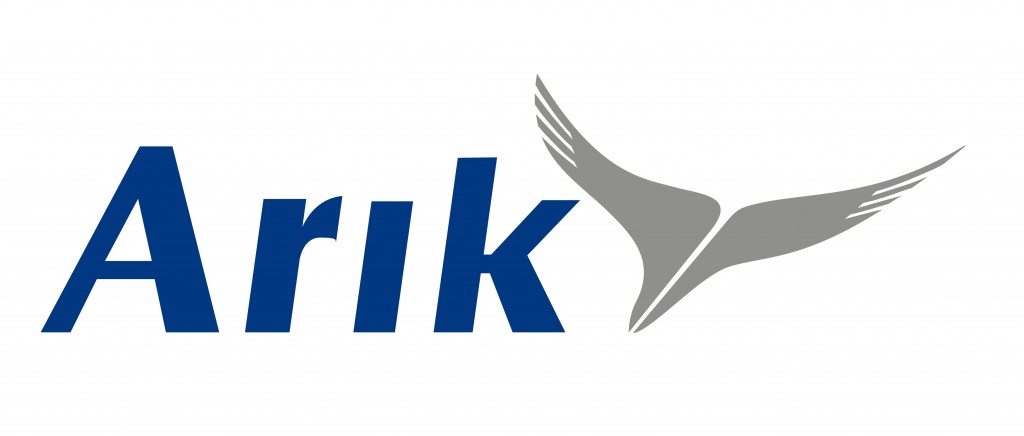News
FG Talks Tough, to Cut Right of Way to N145

The Nigerian government appears ready to have taken drastic steps to redress issues surrounding telecom infrastructure as ‘critical national infrastructure’ by first addressing right-of-way violation by various governments across the federation, Nigeria CommunicationsWeek can now report.
The non-implementation of standard national right-of-way policy is one of several militating factors against telecom operators’ ability to provide good quality of service to customers.
Omobola Johnson, minister of communications technology noted that telecom infrastructures are the most vulnerable in the country.
With current charges rising as much as N10, 000 in some states, telecom operators groan under the burden of excessive charges.
Her call comes even against the backdrop of new challenges faced by operators in the terrorists charged Northern region. Jonah Jang, governor of the ethnically divided Middle Belt state of Plateau last week ordered state indigenes to boycott services of one of the operators.
Governor Jang ordered Plateau state indigenes to boycott the mobile operators’ services following its decision to vacate the state due to the prevailing violence.
He noted that the operators’ action would cost about 1, 700 Plateau indigenes loss of jobs.
However, Johnson said poor national network coverage, reckless and illegal charges to grant right of way to telecom companies have all conspired to hobble the industry.
“The issues are really around ICT infrastructure. Poor national network coverage cost of access and speed of access. We don’t have enough access, particularly the fiber optic and the advanced wireless technology that are required to have this kind of transactions-the internet backbone, and the existing infrastructures are still very vulnerable,” said Johnson.
She observed that while operators have invested a lot of capital into building critical infrastructure, cases of vandalisation, fiber cuts, reckless BTS shut by local and state governments across the country hamper growth.
The minister stated that these frequent obstructions have also contributed negatively to the non-successful implementation of national programmes like the newly introduced ‘Cashless’ policy by Central Bank of Nigeria.
“There are a number things happening even as the infrastructure available are not enough, the ones available have become vulnerable in the society, which affect various programmes like the cashless economy,” Johnson stated.
Consequently, she noted that her ministry was now poised to tackle the issue of local and state governments’ arbitrary charges on telecom infrastructure, and their non implementation of the rights-of-way to telecom firms.
“So, before you lay one kilometre of fibre N10, 000x 1000 will give you one million naira per kilometre of cable laid. And if you are laying about 50, 000 kilometres of fibre you can imagine the cost to get the network that is required,” the minster enthused.
News
UK Minister for Africa Visits Nigeria to Deepen Strategic Partnership

The United Kingdom’s Minister for Africa, Lord Collins of Highbury, has concluded a three-day visit to Nigeria, aimed at reinforcing the UK-Nigeria Strategic Partnership.

He reaffirmed the UK Government’s strong commitment to deepening trade and investment ties between the United Kingdom and Nigeria.
During his visit, Lord Collins met with senior Nigerian government officials, business leaders, civil society representatives and United Nations agencies.
These engagements underlined the UK’s long-term drive to support Nigeria’s prosperity and stability while deepening bilateral cooperation for transformative growth across our shared priorities.
A key highlight of the visit was Lord Collin’s bilateral meeting with Nigeria’s Minister of Foreign Affairs, Yusuf Tuggar, in which both parties reaffirmed their unwavering commitment to strengthening economic ties and promoting regional security. The Minister was joined by the UK’s Trade Envoy to Nigeria, Florence Eshalomi MP.
Lord Collins also met with Deputy Speaker of the House of Representatives, Hon. Benjamin Kalu, and discussions focused on opportunities to strengthen engagement between UK’s parliament and Nigeria’s National Assembly and the importance of furthering women’s participation in politics.
Speaking on his visit, the UK Government’s Minister for Africa, Lord Collins said: “Nigeria and the UK share a rich, ambitious relationship: one that is deeply rooted in respect.
“Our Strategic Partnership is at the forefront of this, and my visit has focused on how our countries can continue deepening our cooperation on key issues such as trade and investment to drive economic growth and deliver prosperity for us all.”
The Minister held discussions with United Nations representatives on the ongoing reform of the UN system, its implications for Nigeria and how the reform can effectively support those most in need, particularly in Northeast Nigeria, whilst also contributing to global humanitarian efforts.
Lord Collins also met with civil society leaders to discuss electoral integrity and governance reforms, reinforcing the UK’s commitment to democratic values and community empowerment.
He later visited Nigeria’s Anti-Kidnap Fusion Cell: a key security initiative supported by UK expertise through the National Crime Agency and the Integrated Security Fund, which plays a vital role in enhancing local safety and combating serious crime.
Also commenting on the visit, the British High Commissioner to Nigeria, Dr Richard Montgomery, said: “Driving growth is central to the UK’s foreign and development policy. Lord Collins’ visit to Nigeria underscores the UK’s unwavering commitment to deepening our shared prosperity through expanded trade and investment. We are proud to stand alongside Nigeria as it forges a resilient and dynamic economy.”
This visit underscores the UK’s enduring partnership with Nigeria – built on mutual respect, shared goals, and a vision for a prosperous future for both nations.
News
PalmPay Launches CSR Initiatives to Empower Women, Foster Financial Literacy in Northern Nigeria

In a strategic move to expand financial inclusion in Nigeria, leading mobile banking platform, PalmPay has launched a series of CSR programs across Kano and Kaduna. The CSR initiative named “Passing the Baton” represents the brand’s commitment to passing on knowledge and providing the resources individuals and businesses need to achieve financial independence and drive economic empowerment.

This initiative is a bold move by PalmPay to bridge the opportunity gap in the North by providing financial literacy training and micro-business branding support to 5,000 women-owned businesses in Kano and Kaduna. This strategic initiative reaffirms PalmPay’s commitment to inclusive development and economic empowerment, particularly in underserved regions.
“At PalmPay, we believe that real financial inclusion must be far reaching and cover the grassroots,” said Chika Nwosu, Managing Director of PalmPay. “Our new CSR program is focused on supporting gender equity by equipping women with the knowledge, tools, and visibility they need to thrive as entrepreneurs in their communities.”
Through this initiative, beneficiaries will receive free health insurance, hands-on training workshops, enhanced store branding to boost visibility, and branded merchandise to strengthen their business presence.
The initiative is part of PalmPay’s broader strategy to extend its innovative solutions, expand its footprint in Northern Nigeria, while building sustainable partnerships with local stakeholders for long-term impact.
In a show of support, His Royal Highness, the Emir of Kano, Dr. Muhammadu Sanusi II, has endorsed the initiative, calling on other stakeholders to join forces with PalmPay in ensuring the North benefits fully from the growing digital economy. PalmPay has received commendation from community stakeholders, as the initiative aims to serve as a model for similar projects across other northern states.
As PalmPay continues to scale across Nigeria, the company remains committed to bridging the financial inclusion gap and empowering underserved groups, particularly women and youth, through its innovative solutions and impact initiatives.
News
EFCC Witness Admits Writing Off Arik Air’s $2.3M Debt Amid N76Bn Fraud Trial



 Telecom2 days ago
Telecom2 days agoGlo, Huawei, Communications Ministry Bring Digital Services to Abuja Village

 E-Financial2 days ago
E-Financial2 days agoSEC Alerts Public on Silverkuun, Trending Dubious Investment Schemes

 General News2 days ago
General News2 days agoTripoint Travels Hosts Pre-GEC Brunch for Nigerian Delegates Ahead of Global Entrepreneurship Congress 2025

 E-Financial2 days ago
E-Financial2 days agoAfrica Cross-border Payments Set to Hit $1 trillion by 2035

 News2 days ago
News2 days agoPalmPay Launches CSR Initiatives to Empower Women, Foster Financial Literacy in Northern Nigeria

 Telecom2 days ago
Telecom2 days agoExperts @ ABoICT 2025 Warn of Digital Disaster Risks in Nigeria Without AI Governance

 E-Financial2 days ago
E-Financial2 days agoSANEF, CIBN Partner to Expand Agency Banking Certification

 Broadcasting2 days ago
Broadcasting2 days agoDStv Makes History: Inducted into Brand Africa Hall of Fame as Africa’s Most Admired Media Brand




























